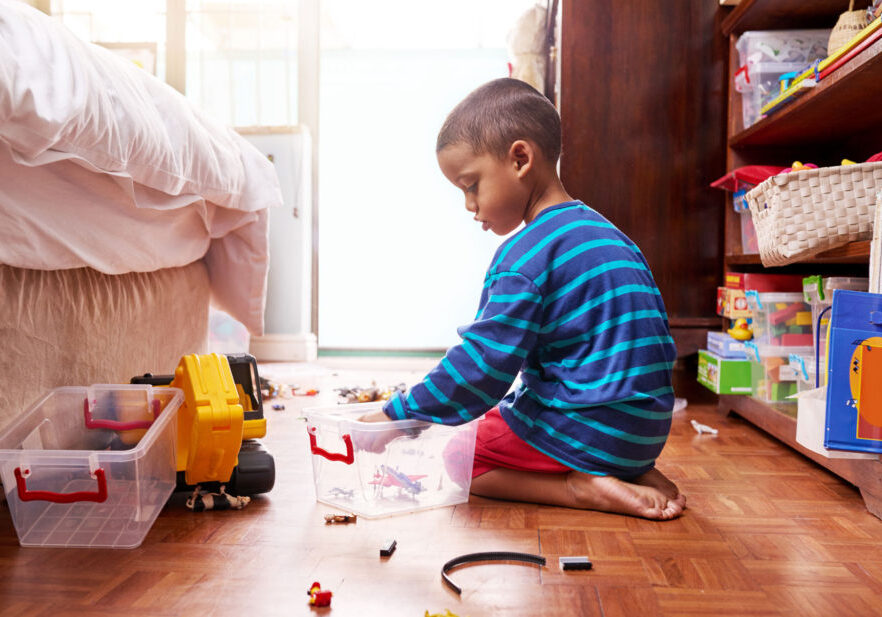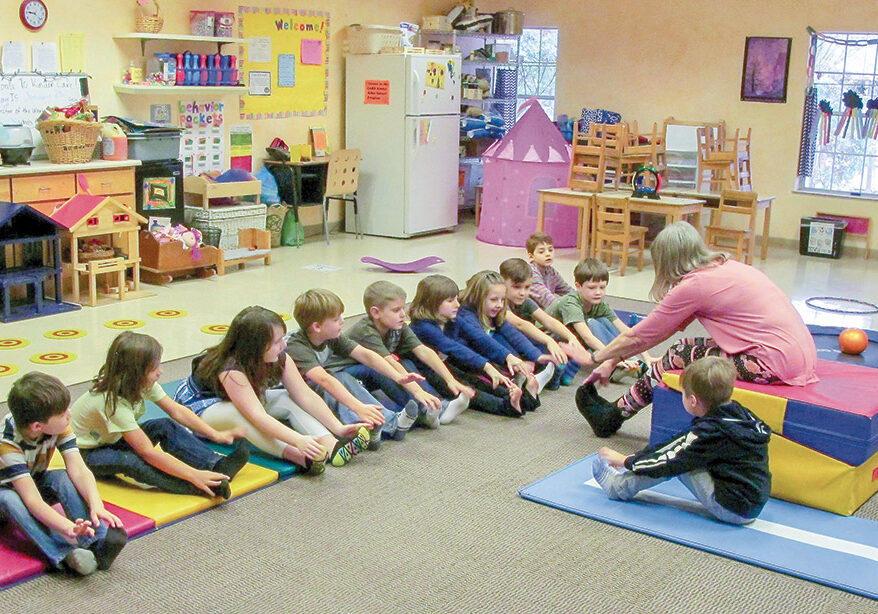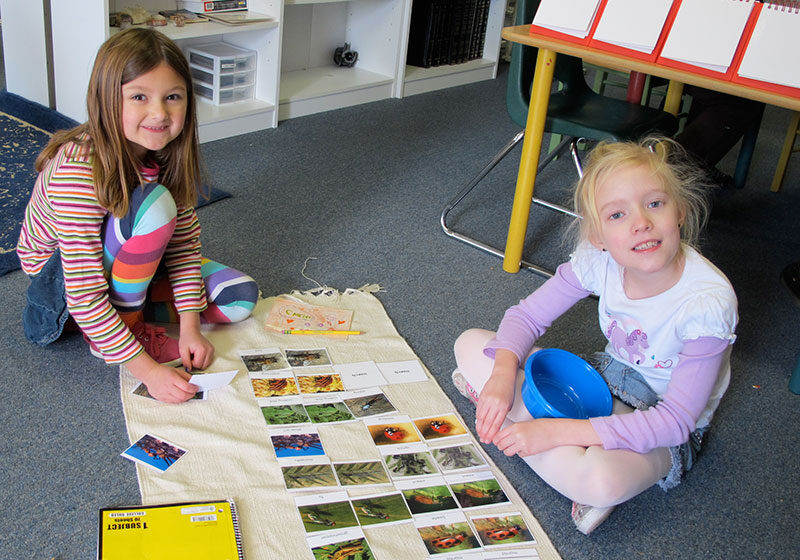Raising smart kids isn’t about “teaching to the test,” it’s about building brainpower. Kids who can seek information, connect ideas, and apply what they’ve learned aren’t just book-smart, they are life-smart. Cultivate your student’s success with these essential skills.
Growth Mindset
What it is: Smart kids define intelligence in terms of learning, not as a fixed trait. Decades of research by developmental psychologist Carol Dweck, PhD, and her colleagues, shows kids who think solely in terms of ability give up quickly when challenged. They see failure as proof that they don’t have what it takes, not as a signal to invest more effort or try another approach. A growth mindset is healthier and more productive. Kids who believe intelligence is developed are not discouraged by failure. They don’t even think they are failing, Dweck explains … they think they’re learning. These learners seek challenges, think creatively and thrive despite setbacks.
How to build it: Reinforce the belief that talents are developed, not a matter of biological inheritance, Dweck counsels. Praise your child for his effort and persistence, rather than his intelligence. Say, “I’m proud of you for playing such a difficult song, you really stretched your skills” instead of “You’re a talented musician.” Share stories of scientists, athletes and artists who model passion for learning and dedication to development. Smart kids need hard-working role models.
Meta-cognitive Understanding
What it is: Smart kids think about their own thinking; they can take multiple perspectives and they’re aware of their own biases and assumptions. “Metacognition isn’t about grades,” says Leif Gustavson, PhD, associate professor of education at Arcadia University in Glenside, Penn., “but it helps kids study efficiently and use knowledge effectively.” Students need to understand how and why they are learning the material in a particular class, he says. This is pedagogical intelligence. When students understand teachers’ methods, they can direct their own learning.
How to build it: When your child completes an assignment or exam, ask “How did it go? What went well? What would you do differently next time?” Also, ask kids to connect previous learning to new experiences, Gustavson advises. This helps them achieve deeper understanding. Encourage your child to apply her learning, even if she feels uncomfortable. “Tolerance for ambiguity is a must,” says Gustavson. “There isn’t just one right answer in life.” Advocate for your child, not just about what she is learning, but about how she is learning. Reflection is critical.
Investigative Approach
What it is: Smart kids can define a problem, formulate options, test potential solutions and decide on a course of action. These are important life skills. “Classroom teachers struggle with how to make science, technology, engineering and math learning more hands-on,” explains Dave Hespe, co-acting executive director of Liberty Science Center in Jersey City, NJ. Yet recent studies show the overall science literacy of Americans is increasing, Hespe says..
How to build it: Teach investigative concepts and skills at each stage of your child’s development. Double your cookie recipe and let kids determine how much butter and flour you need, Hespe suggests. Study bridges you cross to understand their design. Ask your child how he could get over the river without a bridge. Look up cloud types online and formulate a hypothesis about tomorrow’s weather. Engage your child’s curiosity outside the classroom and model problem-solving strategies. Real-world research makes smart kids smarter. Zoos, aquaria, parks and science centers are fantastic learning laboratories.
Emotional Intelligence
What it is: Smart kids recognize and regulate their own emotions and empathize with others. “Kids who develop these skills early in life get better grades, are less susceptible to anxiety and depression, and have healthier, more fulfilling relationships,” says Linda Lantieri, MA, director of the Inner Resilience Program and co-founder of the Resolving Conflict Creatively Program, a social and emotional learning program implemented in more than 400 schools. Kids who can self-soothe when stressed are ready and able to learn from their experiences, without the distraction of emotional drama.
How to build it: Regulating emotions doesn’t mean stifling them, says Lantieri. Don’t diminish your child’s feelings; help him understand what’s causing them. Increase his emotion-related vocabulary by introducing him to words like “angry”, “frustrated”, “jealous”, “excited” and “elated”. Kids should be able to describe their feelings with some specificity, Lantieri says, rather than just saying they feel good or bad. Be an emotion coach: encourage your child to explore his feelings and to learn others’ emotional perspectives. Empathy isn’t automatic, it is learned. Use your own upsets as teaching opportunities: explain step-by-step how you stop, calm down, refocus and then act.
Self-Expression
What it is: Smart kids develop a strong sense of self. They know their own strengths and challenges and make wise decisions. Kids crave a sense of uniqueness and they may feel pressured by intense demands to get good grades, fit in socially, and grow up before they’re ready, says Brandie Oliver, MS, assistant professor of Counselor Education at Butler University in Indianapolis, Ind. Finding their own identity can be awkward and frustrating. It also subjects kids to risk, Oliver says. Peer pressure about alcohol, drugs and sex forces kids to make tough decisions. Bullying – in person or online – is a threat as well. Kids need skills to stand up for themselves.
How to build it: “It is common for parents to think they are in the loop when they don’t know as much as they think,” Oliver says. “Kids share information with parents through a filter.” Sometimes they embellish or omit key details. Listen deeply and encourage sharing. Validate your child’s perspective even when you don’t agree, Oliver says. Model the use of “I” messages, such as “I think” or “I feel.” Self-expression is crucial for personal well-being and social success. Kids who can voice their opinions respectfully often become productive members of the community.
When you give kids the skills to direct their own learning and express their ideas, you facilitate success in school and in life. Now that’s smart.
Comment Policy: All viewpoints are welcome, but comments should remain relevant. Personal attacks, profanity, and aggressive behavior are not allowed. No spam, advertising, or promoting of products/services. Please, only use your real name and limit the amount of links submitted in your comment.
You Might Also Like...

Clever Ways To Help Kids Discover The Fun Of Reading
One of the most important things parents can do is raise a reader. Successful reading leads to successes in academics and gives kids a solid start in life. In fact, […]

How to Get Your Kids to Tidy Up
Seven ways to encourage your kids to pick up after themselves Whether you have convinced your children to practice the joyful minimalism of the KonMari Method or if your house […]

Movement Jumpstarts the Brain – Flipping the Learning Switch at Blue Oak School with S’cool Moves
“Our highest endeavor must be to develop free human beings who are able, of themselves, to impart purpose and direction to their lives.” Rudolf Steiner (1861-1925) Today, parents have choices […]

Helping Kids Learn to Make Good Decisions
Nurture independent decision-making Ever looked at your child in bewilderment and asked: “What were you thinking?!” Then you know that kids, especially teens, can make some profoundly poor decisions. Luckily, […]




